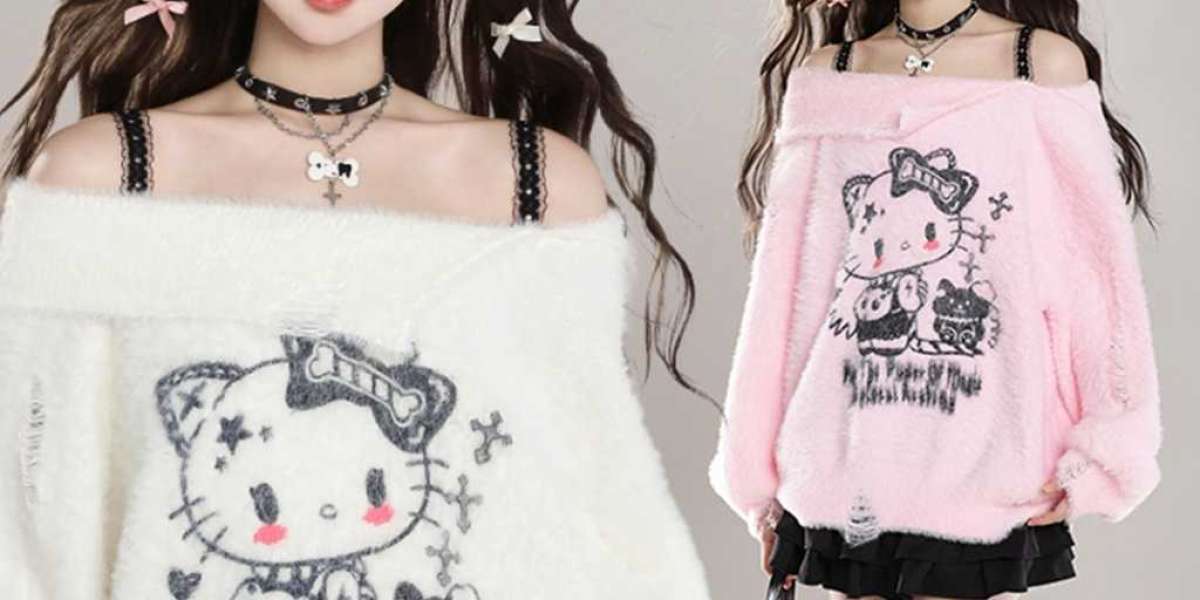Introduction
In recent years, the style world has seen a surge in recognition of kawaii pastel outfits. Identified for his or her gentle and delicate hues, these outfits are sometimes characterized by their playful and cute aesthetic. The term "kawaii" originates from Japanese culture and refers back to the concept of lovable, adorable, or cute. Pastel colors, however, are mild and airy tones that invoke feelings of calm and tranquility. This paper goals to discover the rise of kawaii pastel outfits in the fashion business, as well as the psychological influence they've on people who put on them.
The Rise of kawaii pastel outfits, stay with me,
The recognition of kawaii pastel outfits might be traced back to the rise of the kawaii tradition in Japan in the 1970s. This pattern was characterized by a deal with cuteness, innocence, and childlike qualities in both trend and common tradition. The kawaii aesthetic rapidly spread to other parts of the world, influencing the whole lot from art and music to fashion and beauty. In recent years, kawaii pastel outfits have turn out to be a staple within the wardrobes of many style influencers and fanatics.
One of the important thing reasons for the popularity of kawaii pastel outfits is their capacity to evoke feelings of nostalgia and happiness. The mushy, pastel colors often used in these outfits are harking back to childhood memories and evoke a sense of innocence and joy. In a world that's increasingly fast-paced and irritating, carrying kawaii pastel outfits can provide individuals with a way of comfort and escapism.
Psychological Impact of Kawaii Pastel Outfits
Research has shown that the colours we wear can have a major influence on our mood and emotions. Pastel colors, specifically, have been found to have a calming impact on people, helping to scale back stress and anxiety. Relating to kawaii pastel outfits, the mixture of cute and playful designs with gentle, pastel colors can have a dual impact on one's psychological properly-being.
The kawaii aesthetic is commonly associated with feelings of positivity and happiness. By wearing kawaii pastel outfits, individuals can harness these constructive emotions and undertaking them to the world round them. This can help increase one's self-esteem and confidence, as well as create a sense of connection with others who share related taste in vogue.
Furthermore, wearing kawaii pastel outfits generally is a form of self-expression and creativity. The playful and whimsical designs typically seen in kawaii fashion permit people to experiment with completely different types and create unique appears that reflect their personality. This may be empowering and liberating, because it gives people the liberty to specific themselves in a approach that feels authentic and true to who they are.
Along with the psychological benefits of sporting kawaii pastel outfits, there may also be social benefits. Research has shown that the clothes we put on can influence how others understand us and might impression our interactions with them. By carrying kawaii pastel outfits, people may be perceived as more approachable, pleasant, and likable, which might result in more constructive social interactions and relationships.
Conclusion
In conclusion, kawaii pastel outfits have grow to be a preferred pattern in the vogue world, because of their cute and playful aesthetic. These outfits will not be only visually interesting however even have a optimistic impression on one's psychological well-being. By evoking feelings of happiness and nostalgia, kawaii pastel outfits will help scale back stress and anxiety, boost self-esteem and confidence, and facilitate optimistic social interactions. As the recognition of kawaii pastel outfits continues to grow, it is obvious that this development is greater than just a passing fad – it is a reflection of our innate need for joy, creativity, and connection.








